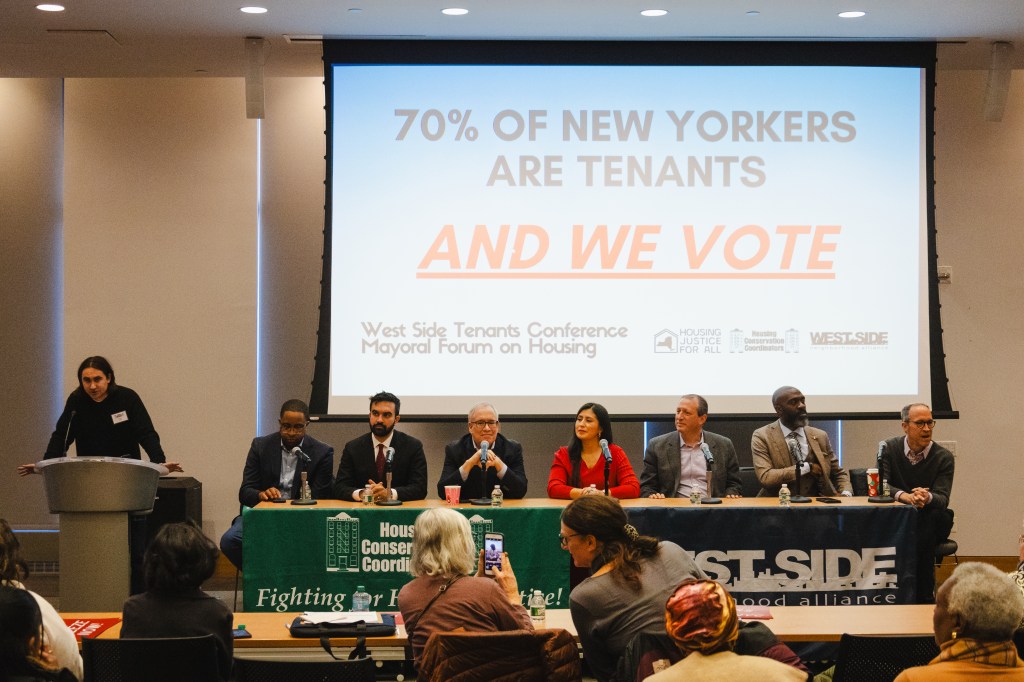Three New York City Police Department (NYPD) Detectives on trial for a variety of charges in the shooting death of Sean Bell and wounding of two others have asked for their trials to be heard by a judge after they were denied a change of venue recently.
Detectives Michael Oliver, Gescard Isnora and Marc Cooper waived their right to a jury trial and Queens Supreme Court Justice Arthur Cooperman approved their request at a court hearing on Friday, January 25, just two days after an appellate court denied their motion to relocate the trial.
Last November 25, 23-year-old Sean Bell was killed in a fusillade of 50 shots which also wounded his two friends, after a confrontation with undercover detectives investigating criminal activity at the bar where the men had gathered for Bell’s bachelor party, just hours before he was to be wed.
Oliver and Isnora, who allegedly fired 31 and 11 times respectively, are on trial for felony manslaughter and face 25 years imprisonment in Bell’s death.
Cooper, who allegedly fired four times, is charged with reckless endangerment, a misdemeanor. He allegedly fired the shot which shattered the window of an Air Train station a block away from the scene.
Two other cops who fired a total of four shots were not charged.
Cooper reportedly did not decide to join his fellow detectives in the non-jury trial until just an hour before the court appearance.
Cooperman, 73, will hear the cases beginning on Monday, February 25. A veteran judge who has presided over more than 500 felony trials, he is known as tough and fair minded and “not a rubber stamp for the District Attorney’s Office,” according to attorney Marvyn Kornberg, who has represented numerous police officers in criminal cases.
Faced with mandatory retirement at age 75, Cooperman is viewed by some as more likely to be independent of any influences other than strict legal interpretation “The fact that he’s close to retirement makes him an even more viable judge,” Kornberg said.
However, it has been noted that many of Cooperman’s decisions have been changed on appeal.
By waiving a trial by jury, attorneys for the detectives have staked their hopes on their belief that the cops could not leave their fate to a dozen citizens - anywhere. They also can’t request another change of venue.
Michael Palladino, president of the Detectives Endowment Association, has said that “we do not have a comfort level going with a jury trial here in Queens.”
“We think that the jury pool is irreparably harmed and has been poisoned,” Palladino said. The detectives union had produced a study finding that more than six in 10 prospective jurors already felt that the shooting was unjustified.
A study from the office of Queens District Attorney Richard A. Brown reportedly found that the number was barely one in six (15.4 percent), and he was quoted as saying that “even prospective jurors with ‘fully formed opinions’ about the case ‘understand the difference between expressing an opinion in a poll and performing a duty in a courtroom.’”
After the hearing, members of Bell’s family, wounded friends Joseph Guzman and Trent Benefield and their spokesperson, Rev. Al Sharpton expressed their criticism of the development.
“We are asked to trust police that don’t trust us and that feel that they can do whatever is necessary to go beyond the scope of accountability,” Sharpton said.
Palladino said he had “complete confidence” in Queens residents, but they “were hit with an avalanche of negative publicity, and of course the comments by the mayor and the antics and theatrics of Reverend Al Sharpton,” had made it “impossible to rely on a jury.”
Shortly after the shooting, Mayor Michael Bloomberg called the circumstances surrounding Bell’s death “inexplicable” and “unacceptable.”
Cops have elected non-jury trials in other cases, especially where publicity was an issue, with mixed results.
In 2003, Police Officer Bryan Conroy shot and killed Ousmane Zongo, a 43-year-old African immigrant, during a struggle in a Chelsea, Manhattan storage warehouse.
After a hung jury caused a mistrial, Conroy elected for a bench trial. The judge found him guilty of criminally negligent homicide, and sentenced him to five years probation and community service.
In 1996, police officer Francis Livoti was acquitted by a judge of choking Anthony Baez to death after a struggle over an errant football. A federal judge later convicted Livoti of violating Baez’ civil rights and sentenced him to seven years.
Emergency Services Officer Steven Sullivan turned a 12-gauge shotgun on “66-year-old grandmother Eleanor Bumpers” during an eviction from her Bronx apartment in 1984.
In a trial before a Bronx judge, Sullivan was acquitted, after it was shown that the five-foot eight-inch tall, 300-pound Bumpers had attacked his partner with a 10-inch kitchen knife.
The trial was originally slated to begin on Monday, February 4, but was delayed by Cooperman for three weeks, to allow prosecutors to convey to the defense what Brown called the results of “the most thorough and complete investigation I’ve ever been involved in.”
It has been suggested that the defense will cite Bell’s high blood alcohol content to call his behavior into question, after post mortem tests showed he was legally drunk when he got behind the wheel.
Neither the two other victims’ nor the police officers’ blood alcohol levels have been made public - in death, Bell lost the right of privacy.
The defense is hoping that prosecutors can’t prove beyond a reasonable doubt that each of the three officers was unjustified in opening fire. “It’s a very difficult burden,” said Isnora’s lawyer, Philip Karasyk.































